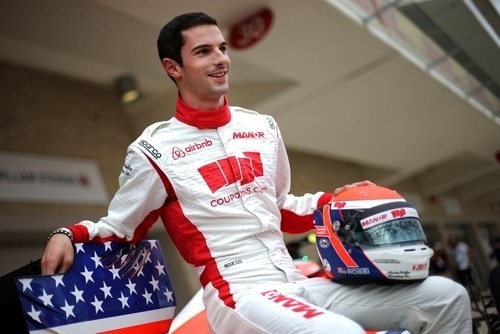
Now that Formula One is under the ownership of an American media company, the sport is in a good position to finally win over the American market. However, the absence of American talent in Formula One makes this goal problematic.
A big fear when Liberty Media’s Formula One acquisition was announced was that the sport would be Americanized. That would take years to happen and that’s likely not the direction that Liberty Media will be taking Formula One, although the sport needs to finally take advantage of the American market. However, there are a number of hurdles that Liberty will need to clear before they can have a hope of doing so.
McLaren’s executive director, Zak Brown, has said that Formula One needs more American races, but is that really the answer to catching the American market? As the schedule is right now, each country only holds one Grand Prix per season and that’s the way that it has always been, with only a few minor exceptions throughout history. This is the fair way so that all of the countries in the sport or on equal terms and so that no country has a majority.

Even having another race in America wouldn’t help the sport. The goal should be to get American fans following the sport in general, not specific races. There’s only four countries (Canada, USA, Mexico and Brazil) in the American time zone that hold Grand Prix events right now and adding another American race is not going to draw any more fans into Formula One, especially when there is very little American element in Formula One.
Something Formula One needs in order to gain the attention of the American crowds is more American talent. Having national talent in sports is huge and comes with a lot of fans. Of course Haas joined the show last season, but they didn’t bring in an American drivers. Getting American drivers into Formula One is the key to the sport’s success.

Unfortunately, it’s more difficult for American drivers to get into Formula One than it is for the European drivers. Europe is home to many global motorsport leagues, but America is not. The two really big motorsport series in America are NASCAR and IndyCar, both of which are pretty much contained within North America, which makes it hard for American drivers to make their way into global motorsport because it’s hard to get American sponsors that are willing to come with them as they leave the grounds of America. That’s something that we saw with Alexander Rossi, who left Formula One to go to IndyCar because that’s where the money is for an American driver.
Formula One needs more American-based sponsors that are willing to help drivers advance into the other feeder series of Formula One because there just aren’t enough scouts looking at American motorsport for potential Formula One drivers. The Haas F1 Team was a hope for that since they are American, but they’ve really disappointed in that area since they have yet to actually sign an American driver.
But there’s an issue. In order to get the American brands interested in sponsoring their own drivers to get to Formula One, the sport needs to be more popular in the US. And that’s not going to happen until we get some American talent into the sport. So it’s an infinite loop that the sport needs to overcome.

Unfortunately, Formula One is not as global as we like to think. It’s still very much a European dominated sport. In the Americas there is a lack of Formula One coverage, talent, merchandise and awareness. Formula One is very much a brand that people from the Americas know nothing about.
America is very big on sport and has very many passionate sports fans. Formula One needs to find a way to generate some interest from America without damaging their European market that they’ve built over the past decades. It’s a big task, but it’s something that needs to be done if Formula One hopes to grow globally.
The views and opinions expressed in this article are solely those of the author and do not necessarily reflect the official policy or position of any other agency, organization, employer or company. Assumptions made in any analysis contained within this article are not reflective of the position of any entity other than the author.